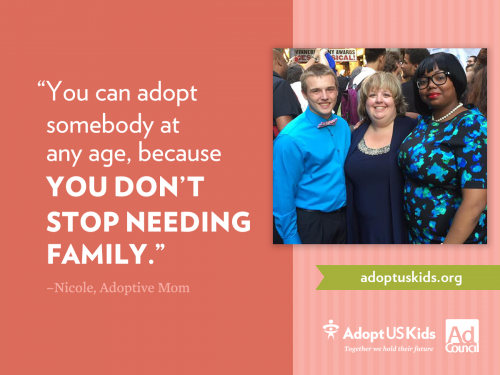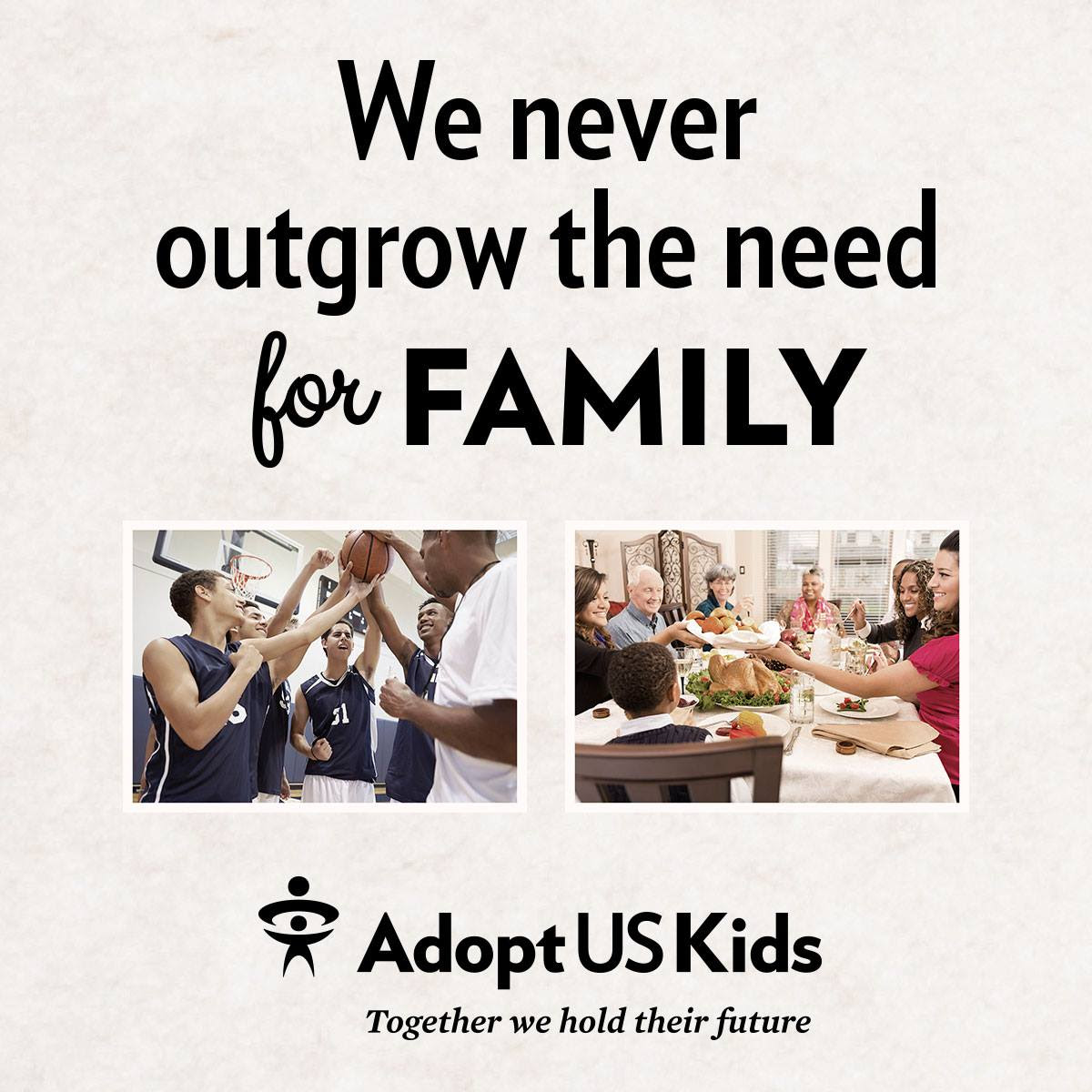
Did you know that November is National Adoption Month? I’m reaching out to you, my loyal readers, on behalf of the U.S. Department of Health and Human Services, AdoptUSKids, and the Ad Council to ask for your help in spreading the word about just how important it is for prospective parents to consider adopting older youth from foster care.
There is a stigma about older kids that make people shy away from looking at them for adoption, and it is sad, really. Older teens have lower adoption rates than younger children, and they often wait longer to be adopted. But no matter their age, all kids need a supportive, loving home, and the teenage years are a critical period.
Right now, there are 428,000 youth in the U.S. foster care system and 112,000 are waiting to be adopted. AdoptUSKids’ maintains a national photo listing service for children waiting to be adopted.
[youtube https://www.youtube.com/watch?v=Y8NVwgrjvLQ]
Since the project launched in 2002, more than 26,000 children who were once photo listed on adoptuskids.org have been adopted and nearly 39,000 families have registered to adopt through the website. Nevertheless, older youth are disproportionally represented – approximately 43% percent of children and youth photo listed on adoptuskids.org are between 15 and 18 years old, but only 17% of those adopted have been in this age group.
Have you ever considered adoption? Here are a few key things to know and remember:
- Adoption isn’t expensive. Most adoptions from U.S. foster care are free. The minimal costs that can be associated with them are often reimbursable. In addition, the vast majority of youth adopted from foster care are also eligible for monthly adoption assistance up to the level of the foster care rate.
- Kids are in foster care through no fault of their own. Children and youth enter foster care not because they’ve done anything wrong, but because they have been abused, neglected, or abandoned by the people who were supposed to care for them. Over 100,000 are waiting for the love and security that a permanent home provides.
- Many different kinds of people can adopt:
- In most instances, you’re eligible to adopt regardless of age, income, marital status or sexual orientation.
- You don’t need to own your own home, be wealthy, or have a college degree to adopt. (However, you do need to demonstrate that you can support yourself without any additional income, such as adoption assistance.)
- You don’t have to be a stay-at-home parent or have children already. And you don’t have to be of child-bearing age—experienced parents and empty-nesters are encouraged to adopt.
- In most states, you do not have to be married to adopt. Many children have been successfully adopted by single parents.
- Even families living outside of the United States, including military families stationed overseas, are eligible to adopt from the U.S. foster care system.

For more information about adoption, or about becoming an adoptive parent to a child from foster care, please visit adoptuskids.org or visit the campaign’s communities on Facebook and Twitter.
















